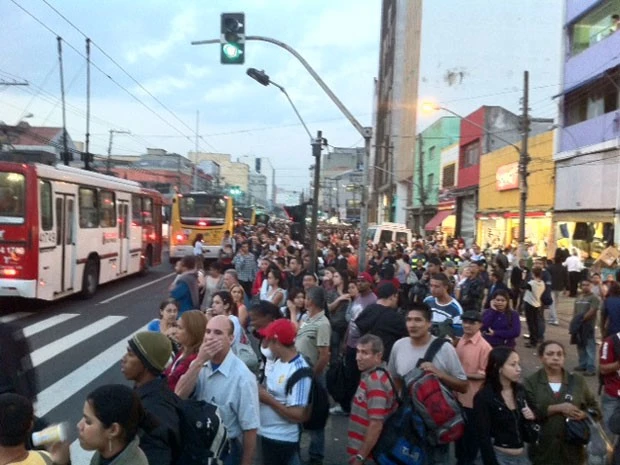Ter um carro no Brasil nunca foi barato - ainda mais um carro novo - e portanto o carro que você dirige ou a velocidade em que você troca de carro se tornou um indicativo de status social, uma divisão de classe das estradas.
Por possuir uma cadeia de produção longa e dividida em várias etapas, a construção de um carro emprega ( empregava ) uma grande parte dos trabalhadores, e historicamente ter fábricas de carros também se mostrou um indicador de industrialização de um país. O Brasil portanto importou esse modelo de desenvolvimento em 4 rodas e, mais notadamente com JK, subsidiou fortemente as montadoras que vieram para o país.
Como consequência, vivemos uma sociedade do carro. Nosso principal modal de transporte é sobre 4 rodas; mas como diria George Orwell, nem todas 4 rodas são iguais: o ônibus é também um automóvel, um carro coletivo, e que na divisão de classe das estradas representa o pobre - não o miserável, esse é o pedestre.
Essa sociedade motora não é apenas uma alegoria vazia, mas sim um reflexo das estruturas de dominação atuais: o poder é exercido pela liberdade de movimento. Quanto maior a minha ligação com aquilo que é local, menor o meu poder; quanto mais lentamente eu me movo, mas fraco eu sou.
Assim, toda vez que você estiver esperando por horas um ônibus, lembre-se que isso não é por acaso, mas sim um reflexo de uma estrutura de dominação. Revolte-se!
Texto motivador, do Zigmund Bauman - sociedade individualizada.
The imposition of norms and the execution of normative regulation tied the controllers and the controlled to each other and made them inseparable. Both sides were, so to speak, tied to the ground: reproduction of the power hierarchy required constant presence and confrontation. It is this reciprocal dependency, this perpetual mutual engagement, which the new techniques of power which have come to the fore in the era of globalization have rendered redundant. The new hierarchy of power is marked at the top by the ability to move fast and at short notice, and at the bottom by the inability to slow down those moves, let alone arrest them, coupled with its own immobility. Escape and evasion, lightness and volatility have replaced weighty and ominous presence as the main techniques of domination.



Preço absurdo de passagem. Não precisamos de trem bala se a população não consegue acessar. Mais vale um trem "normal" e com passagens mais baratas, como é feito na Europa.